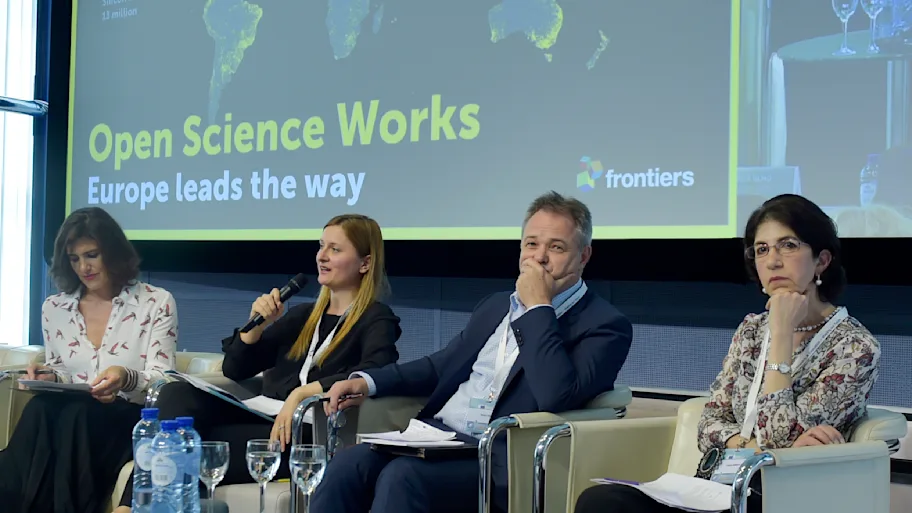
- Science news
- Open science policy
- Is Europe investing enough in Open Science?
Is Europe investing enough in Open Science?
https://blog.frontiersin.org/wp-content/uploads/2018/10/open-conference-2.jpg
Open Science offers both competitive and collaborative advantages, and is vital to boost the impact of Horizon Europe
‘Why be Open?’ That was the key question raised at Science Business’ high-level political conference in Brussels last month.
Keith Sequeira, a Senior Adviser to the European Commissioner for Research, believes the evidence for Open Science is clear. In all regions of the world openness generates more impact from public spending on research and innovation. This is why Europe is promoting Open Science within Horizon Europe, due to run from 2021 to 2027. Put simply, openness offers better value for money for EU taxpayers.
But this value isn’t only economic. For Erik Huizer, CEO of the pan-European research and education data network, GÉANT, the major benefit would be the opportunity the program affords to both cooperate and compete with China and other areas of the world. He believes this collaboration is necessary to solve the major global challenges in energy, food, ageing and climate change.
► WATCH: Open! Conference in full and on demand
“We must invest in science and making it open will give us a huge competitive advantage,” said Frontiers’ CEO, Kamila Markram. “Research and innovation want to be spread. Language, books, journals and the internet were all developed to spread information. If you take a bird’s eye view it’s clear that we’ll end up with an Open Science infrastructure, hopefully by 2020. It’s a scandal that 80% of articles are still inaccessible.’
Markram also pointed out that Frontiers and other Open Science platforms provide a solution to the key issue of intellectual property and copyright. In conventional subscription publishing the copyright stays with the publishing company whereas in Open Access publishing the IP remains with the author, institution or funder to commercialize, reuse or share articles and data.
According to Christian Ehler, a German Member of the European Parliament charged with steering the Commission’s Horizon Europe proposal through the Parliament, “Europe is falling short.” He questioned whether there is enough investment in Horizon Europe, comparing the EU’s research and innovation budget to China’s, which quadrupled between 2006 and 2016. For Ehler, Horizon Europe needs a budget of €160 billion to reflect the EU Member States’ commitment of 3% Gross Domestic Product to be spent on research.






